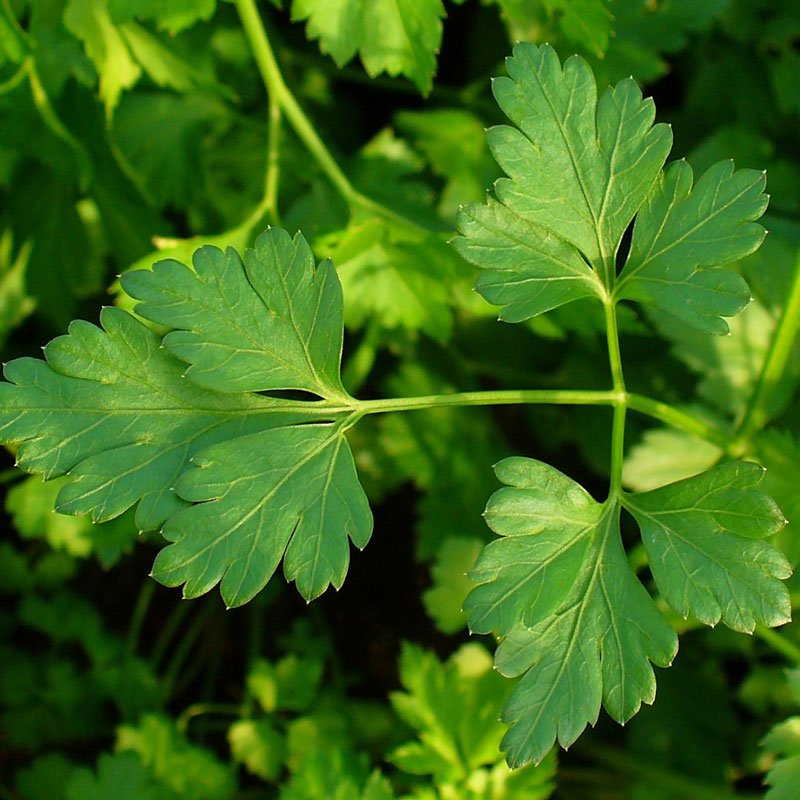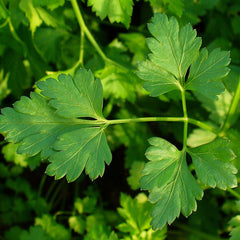

Parsley (Petroselinum crispum)
- $14.00 CAD
- $14.00 CAD
- Unit price
- per
50g, 100g, 250g
Couldn't load pickup availability
Parts used: Leaves
Properties
Antibacterial, antifungal, antilithic, antirheumatic, antiseptic, antispasmodic, carminative, diuretic, emmenagogue, expectorant, galactagogue, hepatic, lithotriptic, nervine, parasiticide, purgative (gentle), stimulant
Primary nutrients
Calcium, chlorophyll, cobalt, copper, iron, potassium, riboflavin, silicon, sodium, sulfur, thiamine, vitamins A, B and C
Parsley is often recommended as a preventative herb. It is so nutritious that it increases resistance to infections and disease. The roots and leaves are very good for all liver and spleen problems caused by jaundice and venereal diseases. Parsley is effective in treating the kidneys by providing essential nutrients that help cleanse the blood filtering system. It helps protect and strengthen the urinary tract. It is a mild and gentle diuretic. As a diuretic, parsley can help reduce high blood pressure. Parsley is said to contain a substance in which cancerous cells cannot multiply. It should not be used during pregnancy, as it may bring on labor pains and can dry up mother’s milk after birth.
Primary Applications
Blood impurities
Cystitis
Gallstones
Jaundice
Kidney inflammation
Urine retention
Secondary Applications
Allergies/hay fever
Arthritis
Asthma
Back pain, lower
Blood pressure, low
Breath, odor
Cancer
Coughs
Conjunctivitis
Gonorrhea
Gout
Indigestion
Liver disorders
Menstruation, absent
Nerve problems, sciatic
Pituitary problems
Prostate problems
Rheumatism
Thyroid problems
Tumors
Veins, varicose
Venereal diseases
50g, 100g, 250g
RELATED PRODUCTS
- Choosing a selection results in a full page refresh.


